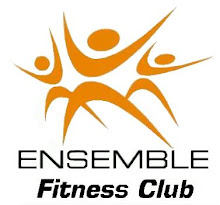We all need to step up and do our part to help overcome it.
The Solution(s)?
PARENTS:
Behavior
1) Be a Role Model – walk the walk - What you do is more important than what you say.
2) Be Supportive and sensitive to the child’s needs
3) Don’t single out the child. Focus on the family.
4) Don't make food or exercise an issue.
Nutrition
1) Don't place your child on a restrictive diet. You could inhibit necessary development. (If (s)he is already obese, consult your physician and/or a registered dietician)
2) Try not to use food to punish or reward your child.
3) Don't overly restrict sweets or treats.
4) Teach your family healthy eating habits and guide choices .
5) Involve kids in shopping and meal preparation.
6) Carefully cut down on the amount of fat in your family's diet.
7) Eat as a family
8) Encourage your family to eat slowly.
9) Provide delicious, healthful meals and snacks.
10) Plan for snacks.
11) Discourage eating meals or snacks while watching TV (mindless).
12) Make sure your child's meals outside the home are balanced.
Activity
1) Increase your family's physical activity. Plan regular family activities (i.e. after dinner walks).
2) Encourage physical activities that children find enjoyable.
3) Encourage after school and summer physical activity programs
4) Focus on fun, not on health or weight loss.
5) Reduce the amount of time you and your family spend in sedentary activities, such as watching TV or playing computer/video games.
6) Set appropriate limits that are consistently enforced.
COMMUNITY:
Who? School Boards, PTAs, YMCAs, Hospitals, Chamber of Commerce, Churches, Rotary Clubs, Lions Clubs
Behavior
Be a Role Model – walk the walk - What you do is more important than what you say. Get groups to lead by example.
Nutrition Support:
1) Farmer’s Markets
2) Healthy Food Fairs
3) Healthy Pot Luck Suppers, etc.
Activity
1) Create safe walking/biking paths.
2) Create safe playgrounds and parks.
3) Set up other opportunities for kids and community members to be active.
TEACHERS:
Behavior
1) Be a Role Model – walk the walk - What you do is more important than what you say.
2) Be Supportive and sensitive to the child’s needs
3) Don’t single out the child. Focus on the class.
Nutrition
1) Teach your class healthy eating habits and guide choices .
2) Teach your class how to shop and prepare meals.
3) Try to have healthy food choices available at your school Cafeteria, Snack Booths, Vending Machines
4) Hold healthy food fairs as a chance for kids to try new foods, Sponsor healthy baking contests
Activity
1) Encourage physical activities that children find enjoyable and that they can have success at. (i.e. Leg strength)
2) Limit competition/comparison except with self.
3) Encourage after school & summer physical activity programs.
4) Set up other opportunities for kids to be active.
5) Hold early morning and/or lunchtime workouts
6) Encourage other teachers to offer some activity within their classes (acting out a play, 2 min. stretch break, etc.)
7) School trips (hiking, rock climbing, bike tour, etc.)
8) Focus on fun, not on health or weight loss.
9) Create a family score card/checklist that can be used at home by all family members
10) Educate Students, Parents, and Community
We've all got to pitch in. Ensemble Fitness Club will be offering FREE afterschool programs for teens.
What can you do?





1 comment:
Great post! These are good, useful suggestions. childhood obesity really is a family issue. Parents must be involved; they're either part of the solution or they're part of the problem, as the saying goes.
Post a Comment